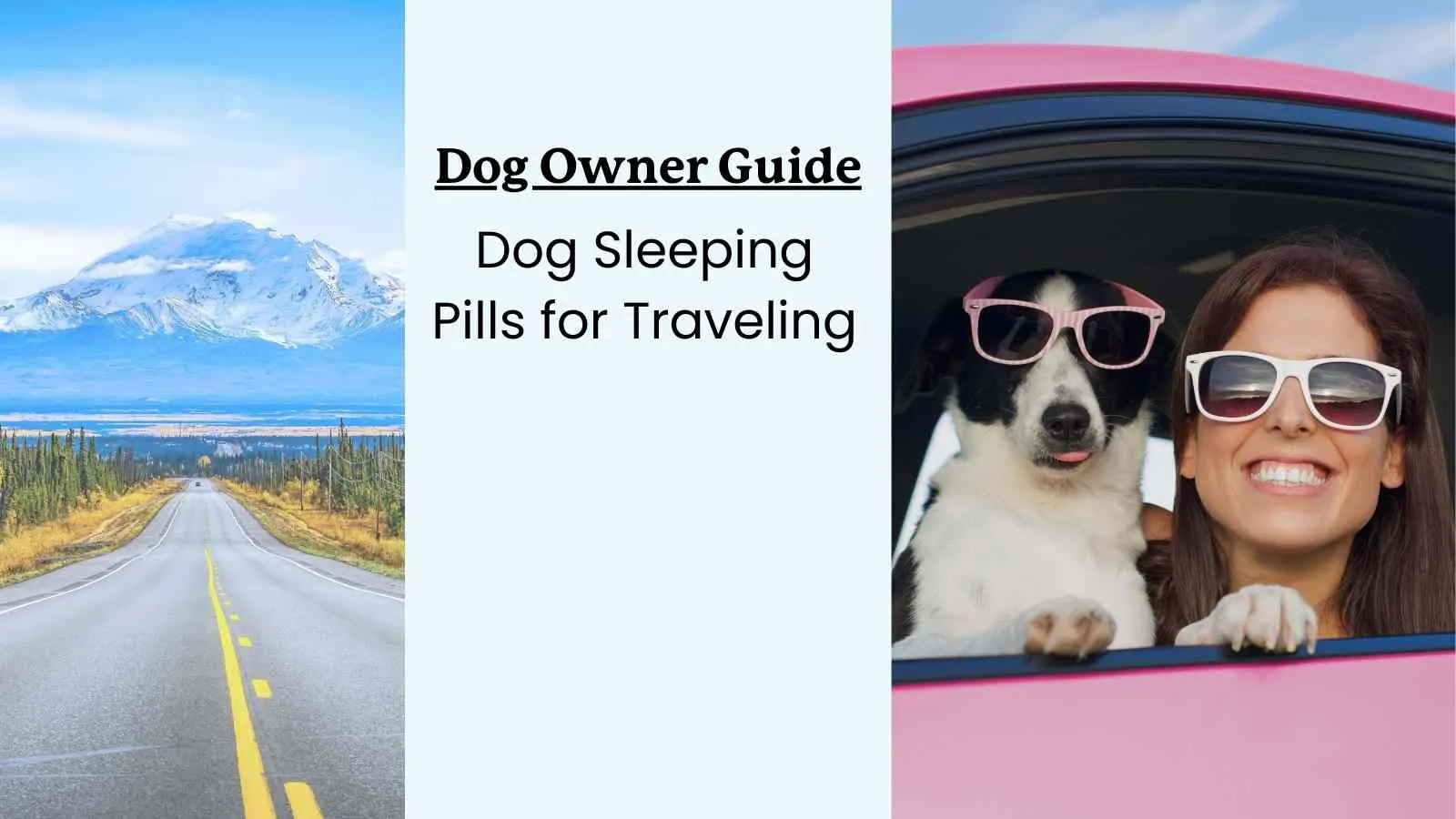Traveling with your dog can be an exciting adventure, but anxiety and restlessness often turn it into a challenge. Whether by car, plane, or train, many dogs struggle with unfamiliar environments, noises, and changes in routine. Sleeping pills for dogs traveling offer a practical solution to promote calm and rest, ensuring a stress-free journey for both you and your furry companion. As a veterinarian-recommended guide, we’ll explore natural and prescription options, backed by expert insights from D.V.M. Lianne McLeod.
Proper preparation is key to enjoyable trips. Dogs sleep 10-14 hours daily, but travel disruptions like motion sickness or excitement can prevent this. Calming aids help restore their natural sleep-wake cycle, supporting overall well-being.
 This is a guide to sleeping pills and chews for traveling dogs.
This is a guide to sleeping pills and chews for traveling dogs.
The Best Natural Sleeping Pills for Dogs Traveling
Natural remedies are often the first choice for sleeping pills for dogs traveling due to their gentle effects and minimal side effects. These options, including herbal extracts and supplements, promote relaxation without heavy sedation. Always start with low doses and monitor your dog’s response, consulting a vet for personalized advice.
Chamomile: A Gentle Calming Herb for Anxious Dogs
Chamomile has been used for centuries as a natural relaxant. Its antioxidant properties and apigenin compound help soothe nerves, making it ideal for dogs stressed by travel. Chamomile supports better sleep by reducing anxiety and may aid digestion, which is crucial during trips prone to upset stomachs.
Administer chamomile as tea (cooled and diluted), powder, or in calming chews. A typical dose is 1/4 teaspoon per 10 pounds of body weight, up to three times daily. Avoid high doses to prevent toxicity, and give with food if your dog has a sensitive stomach. Studies from veterinary sources confirm its safety for short-term use in promoting calm.
CBD Oil: Holistic Support for Restless Travelers
CBD oil, derived from hemp, interacts with the endocannabinoid system to ease anxiety and promote relaxation. For dogs traveling, it addresses issues like noise phobias or separation stress, potentially improving sleep quality. Research, including veterinary reviews, highlights its benefits for cognitive function and joint comfort, common travel aggravators.
Choose pet-specific, full-spectrum CBD with third-party testing. Doses range from 0.1-0.5 mg per pound, given 30-60 minutes before travel. Pet owners report calmer rides, but effects vary by dog.
Melatonin: Nature’s Sleep Regulator for Dogs
Melatonin, a hormone produced in the pineal gland, naturally regulates sleep cycles. Supplementing it helps dogs with travel-induced insomnia, phobias, or cognitive decline. It’s particularly effective for long flights or overnight drives, helping maintain a consistent rest pattern.
Veterinarians often recommend 1 mg per 10-20 pounds, 30 minutes before bedtime or travel. Side effects are rare, but consult for breeds prone to hormonal issues.
L-Theanine and L-Tryptophan: Amino Acids for Mood Balance
L-Theanine from green tea boosts serotonin and dopamine, fostering calm without drowsiness. L-Tryptophan, a serotonin precursor, supports emotional stability and immune health. Both are excellent in chews for sleeping pills for dogs traveling, providing sustained relaxation.
Combine them for synergy; products often include 50-100 mg L-Theanine and 100-200 mg L-Tryptophan per serving.
Passionflower: Enhancing GABA for Deep Relaxation
Passionflower strengthens GABA receptors in the brain, mimicking natural relaxation signals. It’s a lesser-known but effective aid for travel anxiety, helping dogs unwind in crates or carriers.
 Dogs sleeping together in the car.
Dogs sleeping together in the car.
Prescription Sleeping Pills for Dogs: When to Consider Vet-Recommended Options
For severe cases, prescription sedatives may be necessary. These are stronger than naturals and require veterinary oversight to avoid risks like overdose or interactions.
Benadryl (Diphenhydramine): Mild Sedation for Allergies and Anxiety
Benadryl blocks histamine, providing mild sedation alongside allergy relief—handy for travel exposures. Vets prescribe 1 mg per pound every 8 hours, but monitor for dry mouth or excitability in some dogs.
Trazodone: Targeted Relief for High-Stress Travel
Trazodone boosts serotonin to sedate during thunderstorms, vet visits, or trips. Short-term use (2-5 mg per pound) is common, with quick onset for grooming or boarding.
Always prioritize vet consultation; improper use can lead to health issues.
 Image of a dog sleeping
Image of a dog sleeping
Why Do Dogs Struggle to Sleep During Travel?
Dogs nap throughout the day but need consolidated nighttime sleep for tissue repair and mental processing. Travel disrupts this via anxiety, lack of exercise, or pain from conditions like arthritis. Unfamiliar scents, sounds, and confinement exacerbate issues, leading to whining or pacing.
Addressing root causes—like exercise before trips or comfortable crates—complements sleeping pills for dogs traveling. Poor sleep affects behavior, mirroring human fatigue.
Frequently Asked Questions About Sleeping Pills for Dogs Traveling
Can I give my dog sleeping pills for travel?
Yes, after vet approval. Natural aids like chamomile or melatonin are safer starters.
What’s the safest natural sleep aid for traveling dogs?
Melatonin or CBD oil, dosed correctly, top the list for efficacy and safety.
Is Benadryl safe for dog sleep on trips?
It offers mild sedation but requires vet-guided dosing based on weight and health.
How else can I calm my dog naturally while traveling?
Use pheromone collars, calming music, familiar blankets, and gradual desensitization.
Does melatonin work for long dog trips?
Absolutely—it regulates cycles effectively, but confirm dosage with a professional.
Final Thoughts on Sleeping Pills for Dogs Traveling
Choosing the right sleeping pills for dogs traveling—natural or prescription—can transform stressful trips into bonding experiences. Prioritize vet advice, start with gentle options like chamomile, CBD, or melatonin, and combine with behavioral prep. Your dog’s restful sleep ensures happier adventures.
Consult a veterinarian for tailored plans, especially for puppies, seniors, or those with health conditions. Explore more pet care tips on our site for comprehensive dog wellness.
References:
- McLeod, Lianne D.V.M. (lolahemp.com veterinary contributions)
- American Kennel Club: Natural Calming Remedies for Dogs
- Veterinary Partner: Melatonin Use in Canines
(Word count: 1,248)
